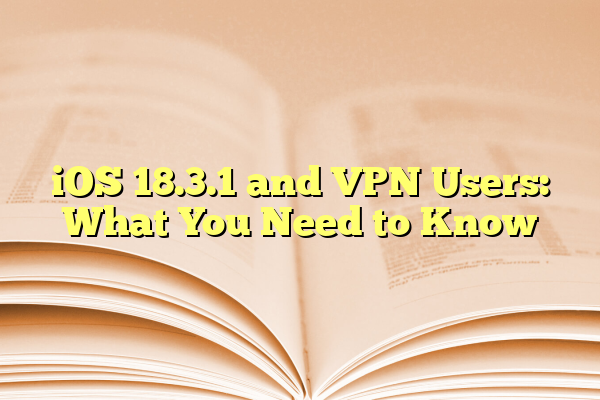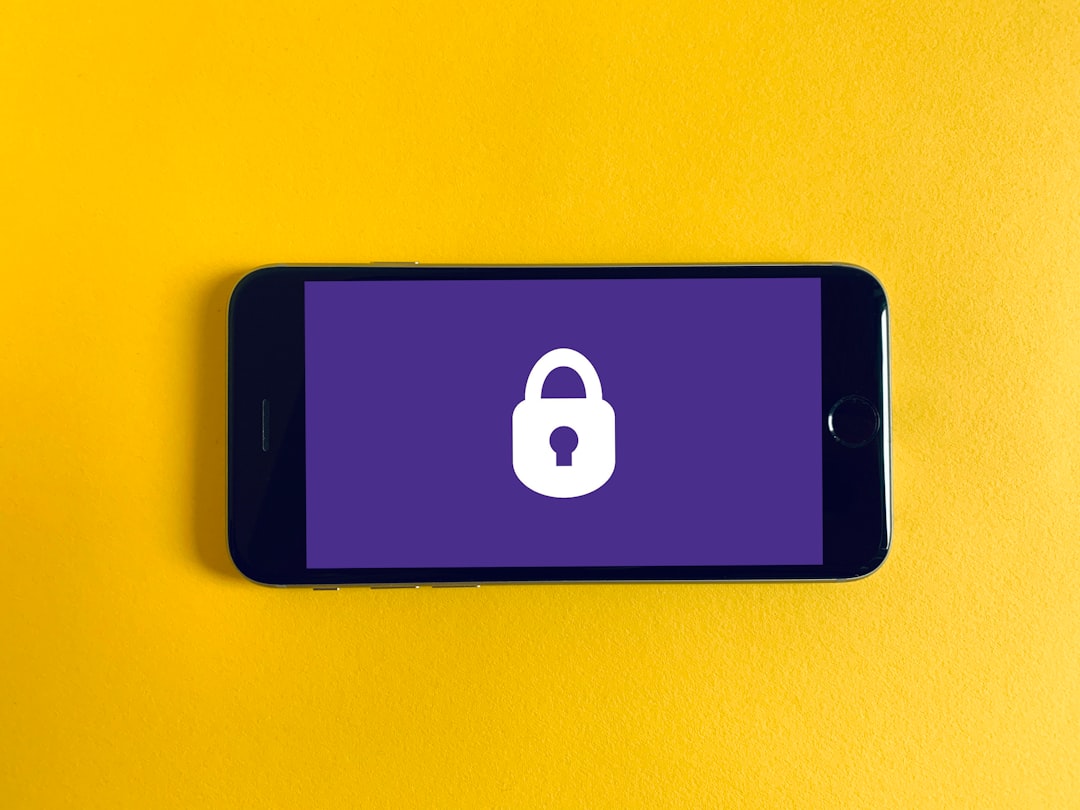
iOS 18.3.1 and VPN Users: What You Need to Know
The latest update from Apple, iOS 18.3.1, has rolled out with impressive performance tweaks, under-the-hood improvements, and a few subtle design changes. However, for a particular group of users — VPN enthusiasts — this update has stirred both curiosity and caution. Whether you’re using a VPN to stay secure on public Wi-Fi, access geo-restricted content, or maintain privacy from ISPs, this new update can have a significant impact on your experience.
In this article, we’ll explore what VPN users need to know about iOS 18.3.1, how it could affect your VPN connection, and best practices for maintaining your privacy and performance post-update.
Contents
iOS 18.3.1 Overview
Before we dive into the VPN-specific implications, here’s a quick look at what iOS 18.3.1 brings to the table:
- Bug fixes for minor performance issues identified in iOS 18.3
- Security patches to address newly discovered vulnerabilities
- Enhanced battery optimization across supported devices
- Siri improvements and expanded voice command utilities
The update appears modest on the surface but has made some important changes to how network traffic is handled — a change that VPN users should not ignore.
Behind the Scenes: What Changed for VPNs in iOS 18.3.1
One of the lesser-publicized changes in iOS 18.3.1 is an update to Apple’s network extension framework. This affects how third-party VPNs operate in the background. Apple has made these adjustments to accelerate network functions, improve hand-off efficiency, and better manage background tasks that rely on encrypted communication.
However, these refinements may have unintended consequences for VPN applications, particularly those that rely heavily on constant, background connectivity. Here’s why:
- Stricter app background activity limits
- Changes in DNS routing behavior for certain network types
- Modified network priority rules that can interfere with split tunneling
These alterations aim to improve the overall iOS experience but could cause some common issues with VPNs if left unaddressed.

Is Your VPN Still Working After the Update?
If you’ve recently updated to iOS 18.3.1 and noticed connection hiccups, apps not loading, or websites being blocked, you’re not alone. Several users have reported inconsistent VPN behavior, especially when switching from Wi-Fi to mobile data or when the device wakes from sleep mode.
Here are a few signs your VPN might be affected:
- Your VPN disconnects when the phone is idle for too long
- Some apps fail to recognize the VPN tunnel (streaming services, for example)
- VPN reconnect times have increased after switching networks
These issues aren’t necessarily due to a VPN app malfunction; they could be the result of how iOS is now managing network extensions. Many VPNs are scrambling to release updates that mitigate these issues. If you’re affected, make sure your chosen VPN provider has optimized their app for iOS 18.3.1.
What VPN Providers Are Saying
Major VPN services like ExpressVPN, NordVPN, and Surfshark have issued public statements regarding the iOS 18.3.1 update. Most providers are taking actions on the following fronts:
- Updating their iOS apps to comply with the new network handling protocols
- Deploying workarounds for DNS resolving bugs introduced in the update
- Communicating with Apple to resolve permission or compatibility issues
According to ExpressVPN, the most common user-reported issues include temporary connection drops and the VPN icon disappearing from the status bar — both of which are top priorities for their support team.
If you’re unsure whether your VPN is running correctly after the update, it’s a good idea to:
- Check for updates within the App Store for your VPN application
- Visit the VPN provider’s official support or community page
- Run a DNS leak test to see if your traffic is still being properly routed through the VPN
VPN Compatibility: What Still Works?
Despite a few hiccups, most top-tier VPNs continue to function with iOS 18.3.1 — but with caveats. Here’s what you can expect:
- OpenVPN and WireGuard protocols continue to offer stable performance, although they may reconnect slower after sleep mode
- IKEv2/IPSec configurations often require manual tweaks post-update
- Always-on VPN profiles in enterprise and education settings remain reliable
Due to Apple’s sandboxing policies and strict API guidelines, it’s always been a challenge for VPN providers to offer deep OS-level integration. That said, VPNs leveraging Apple’s Network Extension API are generally better positioned to maintain compatibility over the long term.

Best Practices for VPN Users on iOS 18.3.1
If privacy and secure connectivity are your primary concerns, then staying ahead of potential issues is crucial. Here are some best practices you can follow to ensure smooth VPN usage with iOS 18.3.1:
- Update your VPN app regularly: Most providers release rapid patches following major iOS updates.
- Avoid aggressive battery optimization settings: These may interfere with VPN background tasks.
- Use servers closer to your physical location: This can improve reconnection stability when switching networks.
- Test your connection: Use websites like ipleak.net to verify your IP and DNS routing after initiating your VPN.
- Report problems: Help the community and vendors by submitting bug reports when issues occur.
If you rely on automation tools like Shortcuts or Siri to enable or disable your VPN, test these actions thoroughly. Some users have reported certain automations no longer work reliably post-update, depending on how the Shortcuts were configured.
Future Outlook: Apple’s Relationship with VPNs
Apple has long walked a tightrope between privacy advocacy and ecosystem control. While iOS remains one of the most secure mobile operating systems, its walled-garden approach can become a hurdle for software like VPNs that need deeper network access.
With the global rise in digital privacy concerns, and Apple’s increasing focus on personal data protection (evident through initiatives like App Tracking Transparency), VPNs are more critical than ever. It’s reasonable to expect improved support for VPN solutions in future updates, especially as Apple continues collaborating with enterprise partners and privacy-first developers.
Conclusion
iOS 18.3.1 is a solid step forward in Apple’s mobile OS evolution, smoothing out previous bugs and adding subtle performance benefits. However, for VPN users, it’s a mixed bag — everything works, but not without quirks and the occasional disconnect.
The key takeaway? Stay informed, keep your apps updated, and remember that any hiccups are likely temporary as VPN providers adapt to Apple’s latest changes.
For now, your privacy is still in your hands — and your VPN, with just a little fine-tuning, remains your trusty shield on iOS 18.3.1.
